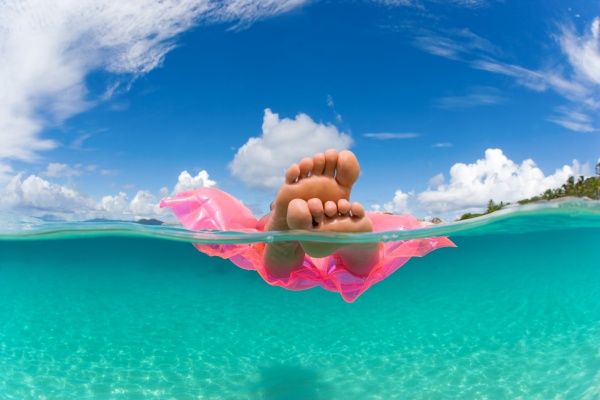Ten Tips for Staying Healthy on a Cruise - Part 2

1 Nov 2016
Written by Dr Bob Kass - Medical Director of Globe Medical
Continuing on from last weeks post, here are tips 6 - 10 for staying healthy on a cruise.
6. Skin considerations apart from sunburn
Skin infections are commonly associated with travel to tropical areas. Cruising allows people to explore island groups in the Pacific and the Caribbean. Many take the opportunity to go snorkelling or have a scuba dive. It isn't always appreciated that water may be close to population centres and not pristine. You may find yourself swimming unknowingly in sewage!
It is very important to always wear good footwear on beaches and around coral. Small cuts or scratches need to be treated quickly with irrigation, antiseptic cream and cover.
7. Reduce mosquito bites.
Diseases carried by mosquitoes are common in areas frequented by cruise ships. Dengue fever is probably the greatest concern. More recently we have had major outbreaks of Chikungunya and Zika virus disease in the Caribbean and Pacific.
The Aedes mosquito is responsible for spreading all these viral diseases. Aedes is commonly found around towns, particularly in places where there is rubbish and small amounts of stagnant water. Docks and ports as well as gardens are favourite places. The mosquito is an aggressive biter and is mostly about an hour either side of sun up and sundown. This is just around the time the ship might dock or leave a port! If you are a "mosquito magnet" take special care. The best repellents contain at least 30% DEET or 20% Picaridin.
8. Get fit before leaving. Maintain your fitness on board
Don’t feel guilty about your lack of exercise while on the cruise. The blurr between breakfast, lunch and tea and the snacks in between can be a little daunting. So can a bulging waistline. Lose a few kg before heading off. Consider your current level of physical activity. If it is low then organise a daily walk of at least an hour. Seek out the gym and any instruction while on the cruise. It's all free and it may be the stimulus to continue on return. Use any opportunity in port to get some exercise.
9. Consider motion sickness
Less is said about motion sickness these days as the modern cruise ships have advanced technology to maintain stability even in bad conditions. Despite this, some people still have major issues on a cruise. If you have experienced a bad bout of motion sickness in the past then it is likely the same will happen again.
Consider your cabin location at the time of booking. Make sure it's mid ship and where possible choose one with a balcony to provide fresh air. Eat small snacks and often. It is also a good idea to restrict visual cues to those at a distance and avoid reading or watching moving objects until you have your "sea legs".
There are a number of medications available. If you are prone to motion sickness and you have used a medication successfully in the past then stick with the same medication. If you have had unpleasant side effects such as major sedation or dry mouth, consider trialling a different medication before you leave. Common ones include Dimenhydrinate, Promethazine and Cinnarizine.
10. Put together a medical kit
Medical kits are an essential part of healthy travel. Never rely on the easy accessibility of a pharmacy or a doctor, even on a cruise ship. Pharmaceutical names will often be different and sometimes the cost can be a shock.
Seeing a doctor on a cruise ship can be very expensive and unnecessary if the problem is well known and easily managed. Carrying personal information on when and how to use medication and easy access to generic names for medication gives you some control over the management of common health issues related to travel.
Consider putting together your own travel kit and modify it according to your destination and proposed activities. It can always be updated for future travel.
The Little Book
Travelling soon? A useful resource for any traveller is The Little Book by Dr Maggie Phillips & Dr Bob Kass. The Little Book is a comprehensive 'pocket-sized' resource that aims to give the traveller targeted information about travel health issues. Learn about tropical diseases, travel vaccines, medications, regional health issues and common health problems / risks - all explained in simple terms.
